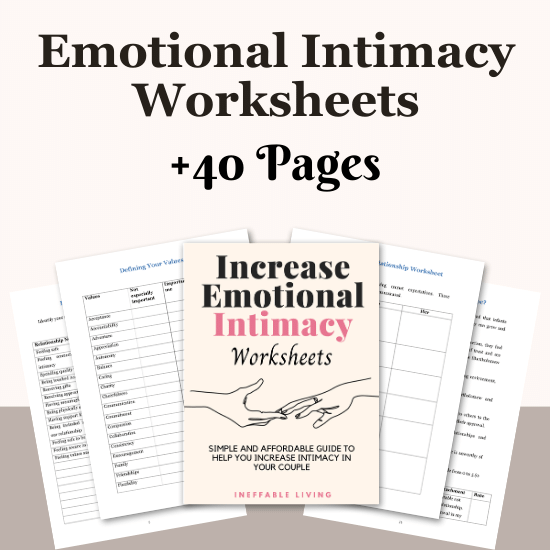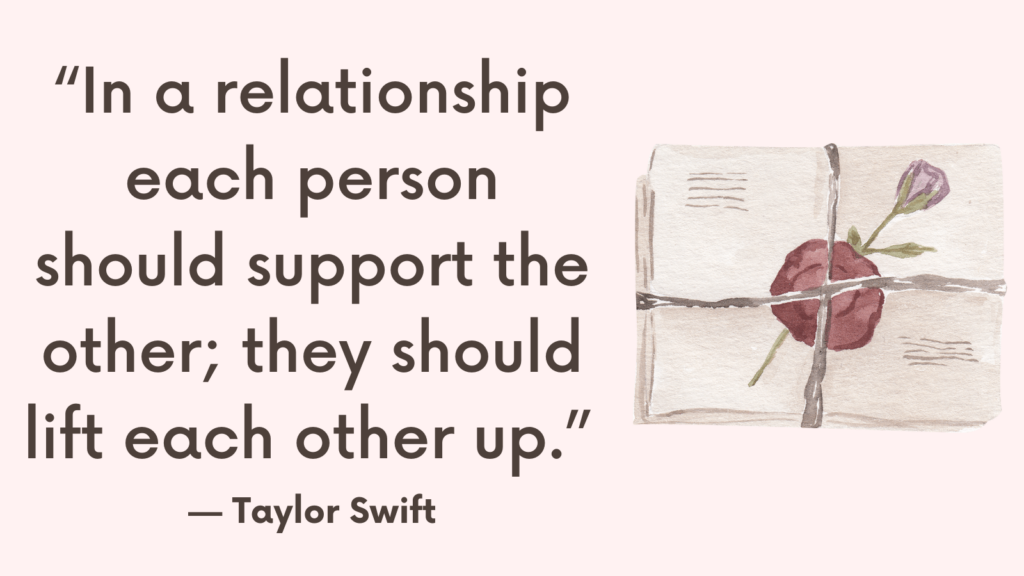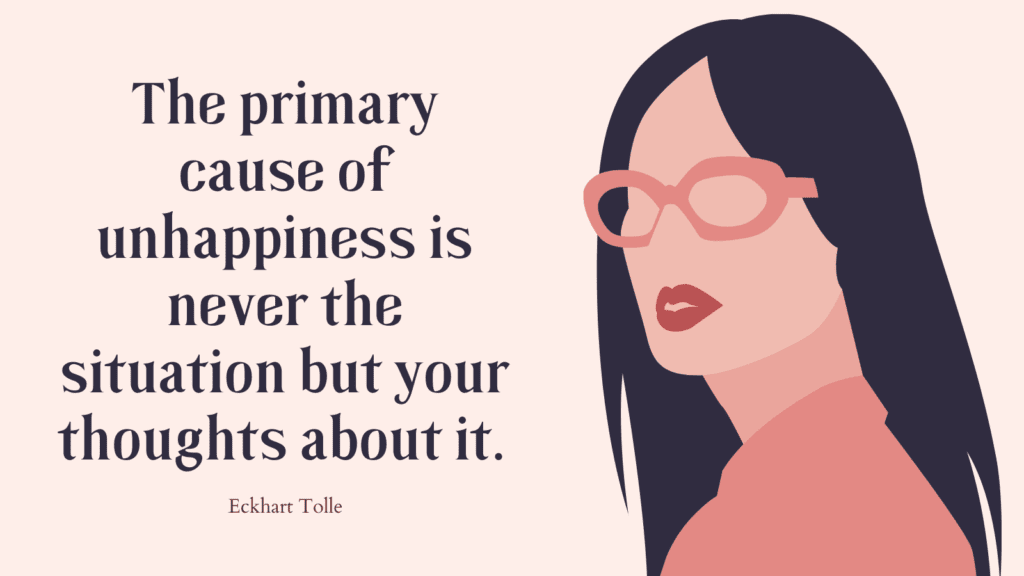This post contains a list of 10 things your partner should never say to you.
Things Your Partner Should Never Say To You
The way we speak to and engage with our partners can greatly impact the emotional well-being and dynamics within the relationship.
Here are 10 statements that can be damaging when expressed by a partner, along with an explanation of their potential impact:
1. “You’re overreacting”
This statement dismisses your emotions and can make you feel invalidated, potentially leading to increased emotional distress and a sense of not being understood or supported by your partner.
2. “I told you so”
This can come across as condescending and may create feelings of resentment and decreased trust within the relationship, hindering effective problem-solving and mutual understanding.
3. “Why can’t you be more like [someone else]?”
Comparing you to others can undermine your sense of self-worth and individuality, potentially leading to insecurity and a lack of acceptance for who you are within the relationship.
Related: Best 50 Ice Breaker Questions For Dating
4. “You’re just like your [family member]”
Unfair comparisons with family members may lead to feelings of being unfairly judged and misunderstood, potentially resulting in tension and resentment within the relationship.
5. “You always…” or “You never…”
Using absolutes like “always” and “never” in a negative context can lead to feelings of defensiveness and hopelessness. It may create a sense of unfairness and exaggeration in how issues are being addressed, potentially hindering effective problem-solving.
6. “It’s your fault”
Blaming language can lead to feelings of guilt and defensiveness, potentially inhibiting open communication and resolution of conflicts. It can also create a power imbalance within the relationship.
7. “You should just know what’s wrong”
Expecting mind-reading abilities from your partner can lead to feelings of frustration and misunderstanding. It may create unrealistic expectations and a lack of open communication about emotions and needs.
Related: Healing Anxious Attachment In Adults In 5 Steps
8. “I don’t care”
Dismissing your partner’s concerns can create feelings of neglect and emotional distance. It may hinder the development of trust and emotional intimacy within the relationship.
9. “I don’t want to hear it”
Expressing disinterest in your partner’s thoughts or experiences can lead to feelings of rejection and emotional distance. It may hinder emotional intimacy and mutual understanding within the relationship.
10. “I don’t trust you”
Expressing distrust without open communication and clarification can lead to feelings of betrayal and a lack of security. It may create a toxic atmosphere of suspicion and emotional instability within the relationship.
Related: Dating With Intention: What Does It Mean & How To Do It?

How to Resolve Conflicts in Relationships?
Conflict is a natural part of relationships, but how it’s managed can either strengthen bonds or lead to their deterioration.
Conflict arises from differences in values, motivations, perceptions, ideas, or desires.
It’s important to recognize that conflict itself is not the problem; rather, the issue lies in how it’s handled.
1. Acknowledge the Conflict
Ignoring or avoiding conflict only allows resentment to build.
Acknowledge that there’s an issue that needs addressing.
2. Choose the Right Time and Place
Address conflicts at a time when both partners are calm and not preoccupied with other stresses.
Choose a private, comfortable place for the discussion.
3. Agree to Engage Constructively
Both partners should agree to approach the conflict with openness, honesty, and a willingness to find a resolution that considers both parties’ needs.
4. Use “I” Statements
Express your feelings and needs using “I” statements rather than “you” statements, which can come across as accusatory and provoke defensiveness.
For example, say “I feel upset when…” instead of “You make me upset when…”
5. Practice Active Listening
Listen attentively to your partner’s perspective without interrupting.
Show that you understand by paraphrasing their points and acknowledging their feelings.
6. Express Empathy
Try to understand your partner’s feelings and viewpoint, even if you disagree.
Empathy fosters connection and reduces tension.
7. Dig Deeper
Conflicts often stem from underlying issues.
Identify the core of the conflict by asking probing questions and expressing curiosity about your partner’s feelings and needs.
8. Recognize Emotional Triggers
Be aware of and discuss any emotional triggers that may be exacerbating the conflict.
Understanding these can prevent future misunderstandings.
9. Find Common Ground
Identify areas of agreement or shared goals that can serve as a foundation for resolving the conflict.
10. Brainstorm Solutions Together
Collaboratively generate potential solutions. Be creative and open to compromise.
11. Agree on Actionable Steps
Decide on specific actions both partners can take to address the issue.
Clear, actionable steps provide a roadmap for change.
12. Set a Time to Revisit
Agree to check in after a specified time to assess progress and make any necessary adjustments.
13. Highlight Strengths
Acknowledge each other’s strengths and the positive aspects of your relationship.
This can reinforce your bond and motivation to resolve conflicts.
14. Practice Forgiveness
Let go of grudges and resentments. Forgiveness is key to moving past conflicts and preventing them from recurring.
15. Express Appreciation
Show gratitude for your partner’s willingness to engage in conflict resolution.
Appreciation fosters positive feelings and goodwill.
16. Develop Emotional Regulation Skills
Managing your emotions effectively can prevent conflicts from escalating.
Techniques like deep breathing, taking a time-out, and mindfulness can help maintain composure.
17. Seek External Support
Sometimes, conflicts are too complex to resolve alone.
Seeking the help of a therapist or counselor can provide new insights and strategies for resolution.
18. Continuously Work on Communication Skills
Effective communication is a skill that requires ongoing effort.
Work on improving your communication skills even outside of conflict situations.
Conclusion
Experiencing these types of statements in a relationship can be emotionally distressing.
Working together to address and improve communication patterns can foster a more respectful, empathetic, and understanding partnership.
Open, affirming communication and a commitment to emotional validation and support are essential for nurturing a healthy and fulfilling relationship.



